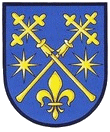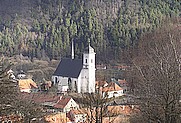 |
městys DoubravníkOficiální stránky |
 |
| Dnes je: 02.04. 2025 | | Poslední články | Mapa stránek | Kalendář | Facebook | Info-seznam | |
| v regionech: - Tišnov |
| - Bystřice nad Pernštejnem |
|
30/03/25 Fotogalerie - Krahujec obecný |
|
25/03/25 Úřední deska - Oznámení o vyhlášení |
|
18/03/25 Úřad městyse - Rozpočtové opatření č.1 |
| - Čištění místn... |
| - MUDr. Jana Jarochová |
| - Fotbalový klub |
| - MUDr. Josef Melník |
| - Divadelní předst... |
|
včera DSO Tišnovsko - TyJáTr FEST 2025 |
|
včera ZUŠ Tišnov - Talentové zkoušky |
|
včera Školní jídelna - Jídelní lístek od 07.04… |
| Celý přehled [17] |
| Doubravnický zpravodaj |
 |
| obsah čísla 03/2024 |
 |
| verze pro tisk [ zde ] |
V dalším pokračování vás čeká seznámení s největší elektronickou knihovnou na internetu - projekt Gutenberg.
My dear reader,
We have finished reading the famous detective story written by Sir Conan Doyle. In the part 12 of our English Reader at Doubravník I turned your attention to the web site where you can find all information concerning this literary work.
But because I wanted to give you a text easy to read and to comprehend, I adapted it very thoroughly. Our text represents only one half of the original one. You have devoted a great deal of work to study this nice detective story and I am convinced you are able to enjoy the original short story now. You are certainly able to find the text at the address you already know. But I feel we are at the point to make us familiar with the greatest electronic library on the Internet, which is well known as the Gutenberg Project.
The father of this important project is Michael Hart who in 1971 published his idea that it would be a really very useful purpose to make accessible lots of famous and important texts which would be, in this manner, freely available to everyone in the world. Since then, he has been joined by hundreds of volunteers who share his vision and nowadays this is the greatest electronic library in the word. Hart believed that computers would one day be accessible to the general public and decided to make works of literature available in electronic form for free. It happened so that the United States Declaration of Independence became the first Project Gutenberg e-text. Hart named the project with the name of Johannes Gutenberg, the famous German printer. As the number of e-texts increased, volunteers began to take over the great deal of his works. After certain time the proofreading of scanned texts became a very important feature of this activity. (proofreading = kontrolní čtení dnes představuje prakticky významnou součást překladatelské činnosti).
In 2005 Project Gutenberg claimed more than 17,000 items in its collection, with new e-books posted almost every day. These items are mostly literary works from the European and American (mostly English) cultural tradition. In addition to literary forms such as novels, poetry, short stories, and drama, there is possible to find there also cookbooks, reference works (dictionaries) This electronic library contains also a few non-text items such as audio files. Most books here released are in English, but there are also significant numbers in German, French Italian, Spanish, Dutch, Finish and Chinese as well as increasing numbers in many other languages (Czech are only two books). In some sense the numbers of book posted here gives us the idea about the importance of various nations on the WEB.
Whenever possible, the texts released are available in plain text, mainly using ASCII coding, but frequently extended to ISO-8859-1. Other formats may be released as well, when submitted by volunteers, with the most common being HTML, because this coding format is nowadays widely used on Internet.
Project Gutenberg is careful to verify the status of its e-books according to US copyright law. New books are added to Gutenberg archive only after it has received a copyright clearance, and records of these clearances are saved for future reference.
Unlike some other digital library projects, Project Gutenberg does not claim new copyright on titles it publishes. Instead, it encourages their free reproduction and distribution.
Most books in the Gutenberg Project are distributed as public domain under U.S. copyright law. This copyright included with each e-book puts few restrictions on what can be done with the texts
Now, my dear reader I recommend you to download the original text of the story we have read. You can find it on the following address:
http://www.gutenberg.org/etext/108
On the same page you can download the relative audio files on the address:
http://www.gutenberg.org/etext/9553
Good luck
. . .
rubriku vede: PhDr.Tomášek Pavel CSc.